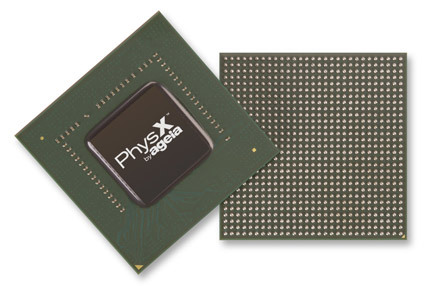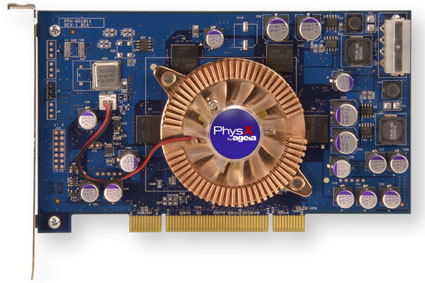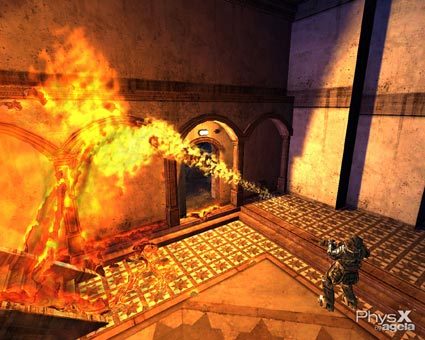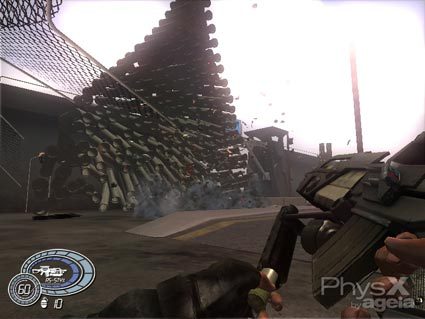GDC 2006: Ageia announces "PhysX" physics processor
San Jose (CA) - Ageia today launched its long awaited PhysX processor. As IP firm, Ageia will not not manufacture PhysX cards but license the technology to card manufactureres instead. BFG and Asus will bring Ageia-based physics boards to the market later this year.
As 3D accelerators were added to PCs in the 90's, Ageia believes physics acceleration will become the staple for games to come. Managed by the CPU and rendered by graphics processors, the dynamics of objects and materials in the 3D rendered world will be accelerated by the physics processing unit, short "PPU". Not surprsingly, Ageia says that the PPU is one leg in the next revolution in computer gaming.
While ATI and Nvidia are favoring a dynamic load balancing approach among m,ultiple graphics processors to enable physics capability, Ageia offers a physics chip that is developed from the ground up. The company claims that, compared to its competition, the dedicated physics chip is able to handle larger number of complex and dynamic calculations and let the CPU handle artificial intelligence and other managerial tasks and the graphics card to do what it was designed to do - to render frames.
According to Ageia, more realism into games requires a need to unleash physics in many facets of game environments. For example, this includes mist and fog that can interact with moving solid objects - such as a car that is traveling down a rain covered highway. Or, if a player spews napalm towards an enemy on the other side of building on stilts, then the napalm should be able to move as a fluid should under the building through the open space.
Here is a screenshot from Klyotonn Entertainment's Bet on Soldier. Notice how the napalm flows in an arch, then down the wall, and then down the stairs.
The second facet is delivering a wide scale physics in every part of the game and not just in select scenes as we see it today. If an effect is carried out in one area, it should permanently affect the world of the character. The third stage is to enable "everything" in the virtual environment to interact with each other. An example: If you take a situation from a first person shooter of today, a player could throw a grenade at opponents and miss by a few feet. This miss might cause some damage to the opponents but nothing more. However, the explosion could have damaged the structure the opponents were hiding in so that it fell down and buried them. Such interaction, Ageia believes, will change the strategy of gameplay as well as immersion for the player.
Here is a screenshot from Immersive Software's Cellfactor which utilizes many world objects and advanced interaction between them all. The game features from Ageia's SDK (Software Development Kit) that allows for realistic fabrics that can sway in the wind and even rip when the right forces are applied. There is even a gravity grenade that pulls all nearby objects towards it and then explodes outward.
Get Tom's Hardware's best news and in-depth reviews, straight to your inbox.
Ageia-based cards are are available through system builders like Alienware and Falcon Northwest. In addition, BFG and Asus are expected to bring PhysX cards to retail shelves within the second quarter. Pricing has not been announced yet, but sources indicated that several version of PhysX board will be available with prices ranging from $100 to $400.
Related articles:
Ageia updates "PhysX" engine for Playstation 3
Nvidia announces SLI-accelerated physics
Hardware accelerated physics gaming coming your way



